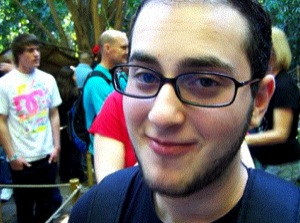
One of the things that has propelled the gay community forward through the years has been its nonprofits, and community support for these organizations. The HRC, for example, began as a gay specific civil rights organization that was supported by members of the lesbian and gay community, and after decades of work the organization began having national legislative wins.
But beyond civil rights wins, moving the gay and lesbian equality movement forward took development of an educated class of community members that could change how gays and lesbians were perceived by other professionals and society at large. An example of this would be the Health Professionals Advancing LGBT Equality (previously known as the Gay & Lesbian Medical Association, or GLMA) that describes their own history this way:
“Over the past three decades, GLMA has tackled many initiatives and projects. Early on, GLMA focused on HIV/AIDS and the issues faced by physicians coming out at work. As the climate and culture have changed, GLMA has become a leader in public policy advocacy related to LGBT health.”
We’ve had HIV/AIDS nonprofits through the years that LGBT community members have participated in funding. These included not only nonprofits providing funding for finding treatments and cures, but nonprofits that provided services for those with HIV/AIDS. Pets Are Wonderful Support (PAWS) San Diego began as an organization that helped those who were ill with AIDS keep their pets by providing pet food and veterinary assistance, and has expanded to cover many more than just those with AIDS.
We even have a nonprofit that specifically gave scholarships to outstanding gay and lesbian graduate students: The Point Foundation. The Point Foundation began as a gay and lesbian scholarship program, and then expanded their mission to include the rest of the LGBT community. Joelle Ruby Ryan is an example of a trans Point scholar – she was among the first trans scholars.
Jacob Rostovsky, is a 22-year-old transgender male, a current student, and a current Point Foundation scholar. On a GoFundme.com webpage (gofundme.com/transunited), Rostovsky recently began crowd-funding a relatively new nonprofit called Trans United with Family and Friends (TUFF). He stated that the organization “needs help getting its 501c and raising money for supplies to outreach to the community.” He describes this nonprofit as follows:
“What is TUFF? TUFF is a non-profit organization, based in Los Angeles that gives financial assistance to transgender and gender variant individuals that can be used toward the cost of transition and medical needs. The money is distributed on an as-needed basis. Recipients must apply for an award, and are chosen based on their financial need, personal, social and advocacy goals for the future.
“Who can apply for funds? Anyone who identifies along the transgender/gender variant spectrum, regardless of their financial needs. Applicants must fill out an application form that requires them to provide information about their medical transition history and financial needs. They must also submit two essays that ask about their future goals and involvement within the transgender/gender variant community.”
Rostovsky’s plans for the money he crowd-funds with his current effort is to pay his travel and administrative costs as he begins the process getting the nonprofit off the ground. He’s currently been trying to do this out of pocket, but he reports that as a student with student related expenses, he’s having difficulty funding the initial outreach efforts for his nonprofit.
His goals are modest with his crowd-funding endeavor: he’s only seeking $2,000. As of this writing, he’s raised about $735.
June is going to be a “tuff” month for me financially, but I’m donating $50 to help get his organization off the ground. It sounds like a good idea to me, and Rostovsky sounds motivated to make this nonprofit happen.
Every large nonprofit started as an idea, and most of these started out as small organizations, often with not much more than an executive director and a few folk who believed in that man or woman.
I believe in Rostovsky’s idea, and have at least $50 in faith in that man who wants to make that idea become reality.
Call it an investment in hope, and an investment in someone who’s expressing love toward his self-identified community.












Via @LGBTWeekly: Funding LGBT nonprofits http://t.co/QoioqSHkFr #trans #lgbt
Funding LGBT nonprofits: An example of this would be the Health Professionals Advancing LGBT Equality (previou… http://t.co/jula8ehvYy
Funding LGBT nonprofits – LGBT Weekly: LGBT Weekly Funding LGBT nonprofits LGBT Weekly An… http://t.co/H3veALCEbd
Scholar Jacob Rostovsky talks about TUFF – his #nonprofit supporting the #trans community http://t.co/jEwtsdx9Je via @lgbtweekly
RT @PointFoundation: Scholar Jacob Rostovsky talks about TUFF – his #nonprofit supporting the #trans community http://t.co/jEwtsdx9Je via @lgbtweekly
22-year-old #trans male Jacob Rostovsky is getting TUFF on outreach & assistance for members of the #trans community. http://t.co/TGIhawZ73H
FYI: Funding LGBT nonprofits | LGBT Weekly http://t.co/3uTVITmg1V